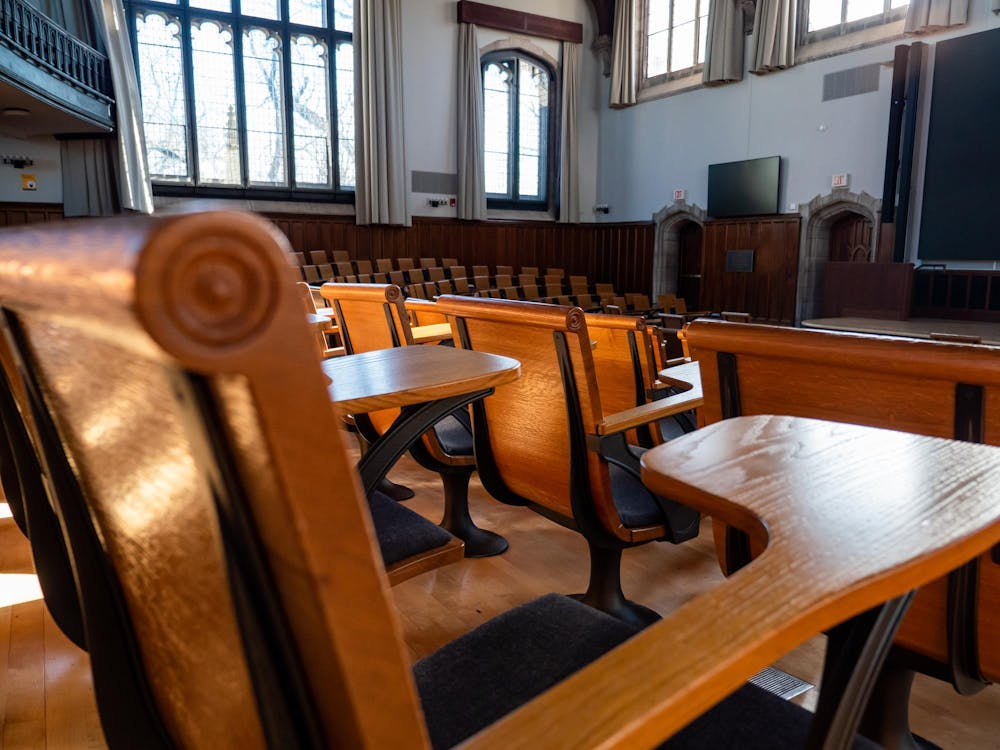As president of an Ivy League university, Harold Shapiro GS '64 has a unique perspective when it comes to defining the nature and goals of a liberal arts education. When the man talks, you should listen.
One way is to read "Universities and Their Leadership," a compilation of essays on the past, present and future of American universities that Shapiro recently coedited and published with former University president William Bowen GS '58.
"Liberal education is a name that has stuck for 2000 years," Shapiro said yesterday. "The intent and objectives have shifted enormously. . . . Society wants something completely different than the Romans intended or anyone in medieval, Renaissance, Enlightenment or even 19th-century Europe, for that matter."
"The purpose of a liberal arts education is not to train someone for a position," Shapiro said. "Its purpose is to develop habits of the mind and hopefully of the heart. With these habits, one can make contributions to one's self, family, community and country."
Individual essays
Shapiro's essay in the book specifically describes the role of the university president, which has also changed considerably during this century.
"The president of a university must exhibit leadership, encourage intelligent conversation, respect ideas, recognize good ideas and act on those ideas whenever possible," Shapiro said.
Politics professor Amy Gutmann contributed an essay describing the ways in which a university can teach ethics to students. She said that a university must promote and develop ethical views both in academic courses and in practice.
"Ethics should be taught as a subject, much like economics and physics," she said. "We can't make people act ethically – not even parents can do that – but we can teach students to think ethically."
Frank Rhodes, president emeritus of and professor of geological sciences at Cornell University, responded to criticisms of liberal arts education in his essay. Among the various negative aspects of the American university system that critics have condemned, Rhodes cited "fragmented fields of study, garbled educational purposes and trivialized scholarship."
In order to answer the critics, Rhodes said he gives speeches and writes books in order to change attitudes.
"We must reassert our teachings and grapple with the big questions. The university must produce more thoughtful and better informed people, and it should prepare someone for life rather than for a career," he said.








